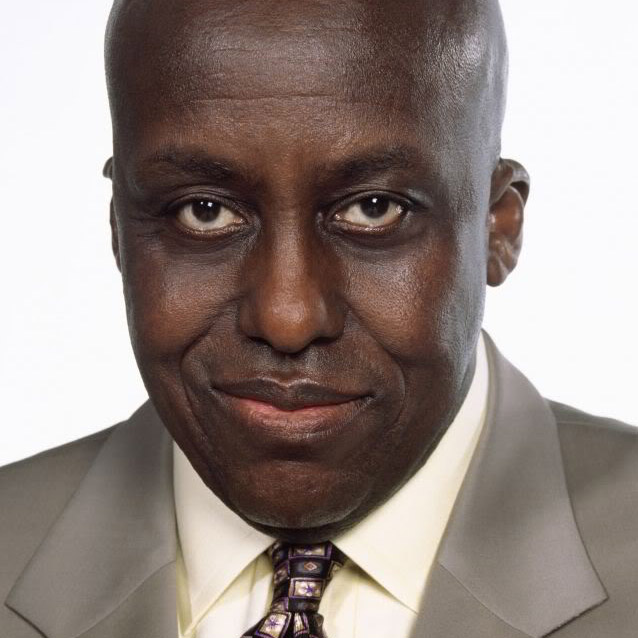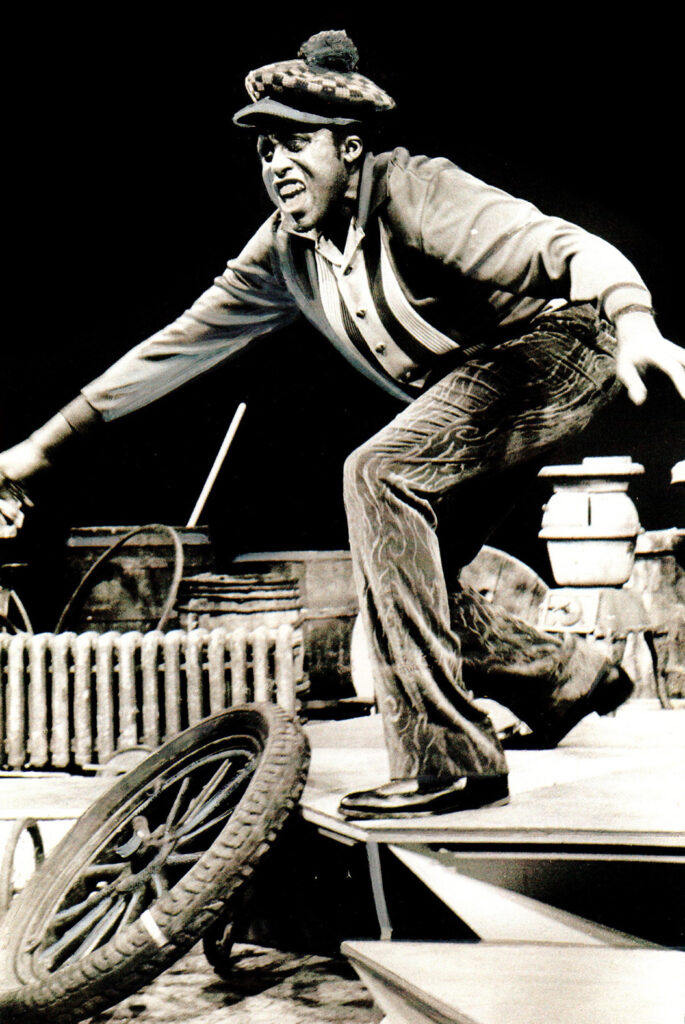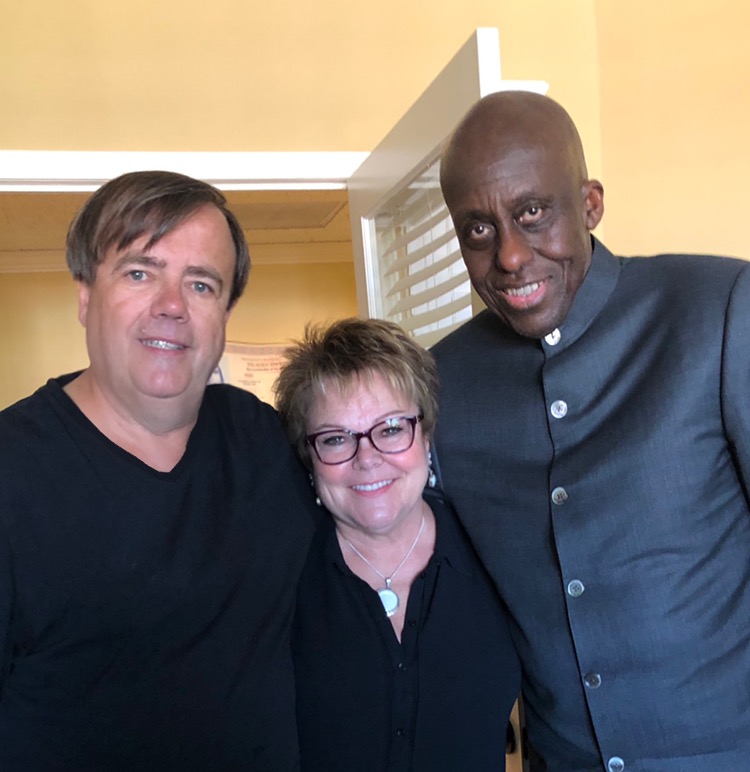
Whenever Bill Duke sends me a text he concludes with either Peace or Blessings. Closing words that transcend so much life-experience as an African-American.
Born in Poughkeepsie, New York, in 1943, Bill has lived through some of the most vile racism imaginable. Like most American and Canadian children, he began kindergarten at five years old and remembers the excitement of the first day, dressed in brand new clothes. As the only black child in class, what he learned on his first day was as old as the USA itself: ignorance and hatred based on the colour of his skin. Even a girl from his neighbourhood, who he’d thought was his best friend, joined in the chorus of disgusting taunts. His young mind processed the situation and came to an obvious conclusion — to make this right, Bill needed to make himself white. Luckily, Bill’s mother walked into the bathroom the moment he held a bottle of bleach to his mouth; he thought if bleach worked on making white towels whiter it would work on him.
How’s that for a first-day-of-school memory.
Somehow, through ups and downs, triumphs and humiliations, that five year old not only survived his first day of school but went on to appear in over sixty films and television shows as an actor, and to direct nearly as many.
I became friends with Bill in California, meeting him at the Transcendental Meditation Centre that I attend with my wife (we spend winters in Santa Monica). I’d read his newly released autobiography, Bill Duke: My 40-Year Career on Screen and Behind the Camera, and we started to talk about writing. Though he knew me for only a brief time he handed me a copy of what Bill calls a children’s book for all ages. Bill wanted both my feedback and thoughts on his effort to find a traditional publisher who would be interested in an illustrated version of the book. The Journey: A Tale of Human Healing is an extended poem he self-published in the mid-1990s. The story is of Nobody, a child who yearns to be Somebody, and follows his life-long journey until he becomes one with Everybody.
Writing poetry has been a part of Bill’s life since he began journaling late in elementary school, becoming an important door for him to step through into high school. As he continued to navigate issues of race, an interesting turn of events brought forward an understanding that not all white people were to be despised. His English teacher, a white woman, admonished him several times for writing in his journal when he should have been taking notes while she taught. One day, while he was writing a poem — instead of paying attention — the teacher took his journal, flipped through it, then walked away, taking the journal with her. After class, Bill demanded it back but she refused and kept it through the vacation break. When Bill returned to school, and her class, she was waiting for him, a card and package in hand. Clueless to what those items represented, Bill opened the card: Congratulations, it read. He then opened the package, revealing a book listing winners from the state poetry competition. Bill Duke was one of the names. After reading his poetry the teacher had selected one she thought best and entered it in the competition. As Bill wrote in his autobiography:
“It was the first time I felt respect and kindness from an adult who was not a relative. Not only that, she was white. That moment changed my life because until that point, my writing had value only to me. Having other people see value in my poetry and award me for what I had written confirmed I had value and worth. I would never forget what she said to me. You’re talented. You deserve it. Never stop writing.”

Bill never stopped writing, or pursuing his other artistic talents, acting and directing. After years of ups and downs through the 1960s and 70s, paying his dues on Broadway, getting his first Hollywood break acting in the comedy film, Car Wash, and working his way into directing a number of television shows, Bill was rewarded with an offer to direct an episode of America’s number one prime-time soap opera, Dallas. He drove to the studio early, eager to be as prepared as possible, and was met by the white security guard who asked, “Who are you delivering for?”
Of course Bill was there as a delivery boy — he couldn’t possibly be there to direct an episode of TV! After all that time, all that success, the shit just kept piling up. Somehow, Bill kept his cool, calmly looked the security guard in the eyes, and said, “I am the first black director on Dallas, the number-one hit show on television, and what I’m delivering is my expertise and talent to that show.” Bill told me the incident was almost worth it for two things: the gasp the security guard let out at that moment, and how quickly the guard opened the gate, smiled, and waved Bill through each morning for the rest of the week.
When he recounts his life Bill’s journey is a swirl of racial acceptance and rejection that makes your head spin. I’m not sure how you make sense of all that, let alone live it for over seventy years. For Bill, early in his career, the personal racism he encountered, the toll of rejection that came with the acting life, and the way the promise of progress in the 1960s collapsed with the assassinations of Dr. King and Malcom X, led him to drugs. A destructive coping strategy to deal with his self-loathing, a terrible state-of-mind that Bill captures in one of the many poems he laces through his autobiography.
Men Like Me (Part 3)
Men like me
Carry signs on corners begging
For change to come
Or dress in suits that never fit
In the eyes of those who wonder
This fool must really think we’re dumb
Where’s that nigger really comin’ from
And we feel it
But zip our lips with nothing to say
Cause we have mountains and mountains of bills to pay
Filled with hate that you take out on you
And everything that loves you too
Like my my my what am I gonna do
Yo my man am I getting thru
Men like me
Read the eleventh line in the poem out-loud to yourself, over and over: “Filled with hate that you take out on you”. In the early 1970s Bill’s self-hate ran so deep that by the time a wonderful opportunity came his way, to appear on Broadway in the Melvin Van Peebles musical Ain’t Supposed to Die a Natural Death, he wallowed in the depths of addiction. The reason I met Bill at the TM Centre in Santa Monica is because, as he tells anyone who wants to hear it, “Transcendental Meditation saved my life”. In the midst of his addiction, Bill’s friend Aida (to steal a famous line from a famous 70s movie) made him an offer he couldn’t refuse: if he practiced TM twice a day for three weeks without taking drugs, and after that time he continued to want drugs, she’d buy him an ounce of anything he wanted. Bill readily agreed. After all, free drugs are an addicts dream!
Of course, meditation won the battle within Bill. TM did not remedy the anger he felt toward a world that often humiliated him for the colour of his skin, but it made him realize that all drugs and alcohol did was to numb the pain, not resolve it. Meditation helped Bill deal with the pain and reflect on a world that is both good and evil. The change that meditating brought to Bill is what allowed him to calmly explain that he was delivering his talent to an ignorant white security guard the day he arrived at the studio to direct Dallas, rather than jump out of his car and, in Bill’s words, “deliver a can of whoop ass on him!”.

Bill was in Atlanta, acting in the TV series Black Lightning that airs on the American network CW, when I caught up with him on the phone. I suppose because the racism Bill has dealt with all his life so appalls me, and also leads me to wonder how someone so beat up by it continues to follow his artistic path within industries dominated by whites, the one movie I wanted to explore with him was The Cemetery Club, a film he directed in the early 90s starring Ellen Burstyn, Olympia Dukakis and Diane Ladd. I asked Bill what attracted him to the film and he said that he wanted to “get out of the box”. That box being defined as a black man directing movies primarily about black experience (A Rage in Harlem, Deep Cover). For Bill, all scripts are stories told by the author that the director collaborates with to understand the arc of the story, create a vision, and then translate that vision to the one hundred or more people on the set. The fact the story is focused on three white Jewish women and the director is black is irrelevant. Or should be, but…
…When Bill was on the promotional tour for The Cemetery Club one film critic immediately pushed the question: “Why is a black man directing a film about three white women?” Bill’s reply was a returned question: “A couple of years ago when Steven Spielberg was promoting The Color Purple did you ask him why a white man was directing a film about black people?” The reporter’s reply was telling. “Oh, well, that’s different,” he said.
Yes, different indeed.
With all that difference constantly foisted on Bill, demanding he focus on the colour of his skin rather than on the work he pursues in his chosen career, he remains extremely generous to others and in his discussions about others. I remember last January, when Bill returned from New York after acting in the Netflix movie High Flying Bird, all he could talk about was Steven Soderbergh shooting the film with an iPhone 8. Bill couldn’t have been more magnanimous in his praise of Soderbergh’s approach, his talent. That’s what Bill, in the end, wants to focus on: talent. Even when the world pushes hard against him, he does everything he can to rise above it.
Just as he ends his text messages to me with either Peace or Blessings.
Call it the Bill Duke way.
To learn more about Bill, check out his personal website or NSights Network, his new YouTube channel. The next Profile, in a few weeks, is about Toronto artist Gordon Shadrach.
I hope you come back.